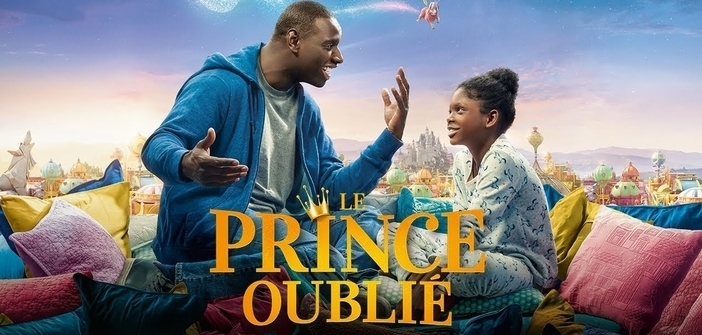For his seventh feature film, Michel Hazanavicius creates a tale about the transition from childhood to adolescence, without overlooking the changes it causes in the parents. While the film is of high quality, the signature style of its creator shines brightly on the screen.
“The Lost Prince” is an ambitious film. Ambitious in terms of the resources provided to the director, with talks of about 24 million euros, whereas the French average is around 4 million euros. Ambitious by the film’s visual performance. It is increasingly common to see French films using special effects, yet this remains a minority in the major productions in France.
Here, the creations by the Digital District and Mikros companies are numerous and highly successful. This gives life to a vibrant and colorful imaginary world, derived from the mind of the main character. While the visual aspect is successful, the same cannot be said for all the formal components.
The major weak point of the film lies in its main character. Omar Sy, who is supposed to draw us into the story—this is indeed the case here—is anything but advantageous. In fact, the actor repels the audience in this character whose personality changes with every scene. He excels as an overprotective father overwhelmed by his daughter’s development, but this is not the case in the imaginary part.
Closer to Michel Hazanavicius’ usual cinema, with a developed visual aspect and more refined dialogues, the actor transforms into Jean Dujardin, mimicking his expressions, postures, and diction. The shadow of OSS 117 looms over Omar Sy’s performance, preventing him from truly standing out, reducing him to a mere imitation.
An Author’s Film Seen Through a Child’s Eyes
One of Michel Hazanavicius’ specialties is developing characters who are not in sync with the world around them. Thus, OSS 117 represented a certain reactionary France in a developing world, or George Valentin in “The Artist” remained stuck in silent cinema while the industry moved towards talkies.
Here, Omar Sy is not in tune with his daughter’s age and treats her like a baby while she’s entering middle school and just trying to avoid the embarrassment caused by her father. This creates comedy as well as empathy for this character, who is touching because he is out of sync. The same goes for Bérénice Béjo, the clueless neighbor who always intervenes at the worst moment and whose attempts to flirt with Omar Sy are all equally disastrous. Michel Hazanavicius is a great director and an outstanding author in France, whose talent earned him an Oscar for “The Artist” in 2012, among other accolades. Driven by an unconditional love for cinema, he continues to convey this on screen. The magical world created in “The Lost Prince” functions like a film set within a studio. The control room, the assistants, the technicians, the costumes, the announcements… everything operates convincingly as a behind-the-scenes aspect of film creation.
Wishing to give his film a “Pixar-like” atmosphere, he hired composer Howard Shore (known for “The Lord of the Rings,” among others). And like all great American directors, he reaches out to children with his author quality. Without neglecting adults. “The Lost Prince” is a family film where everyone can recognize themselves. Michel Hazanavicius delivers a universal film.
Paul Guianvarch


